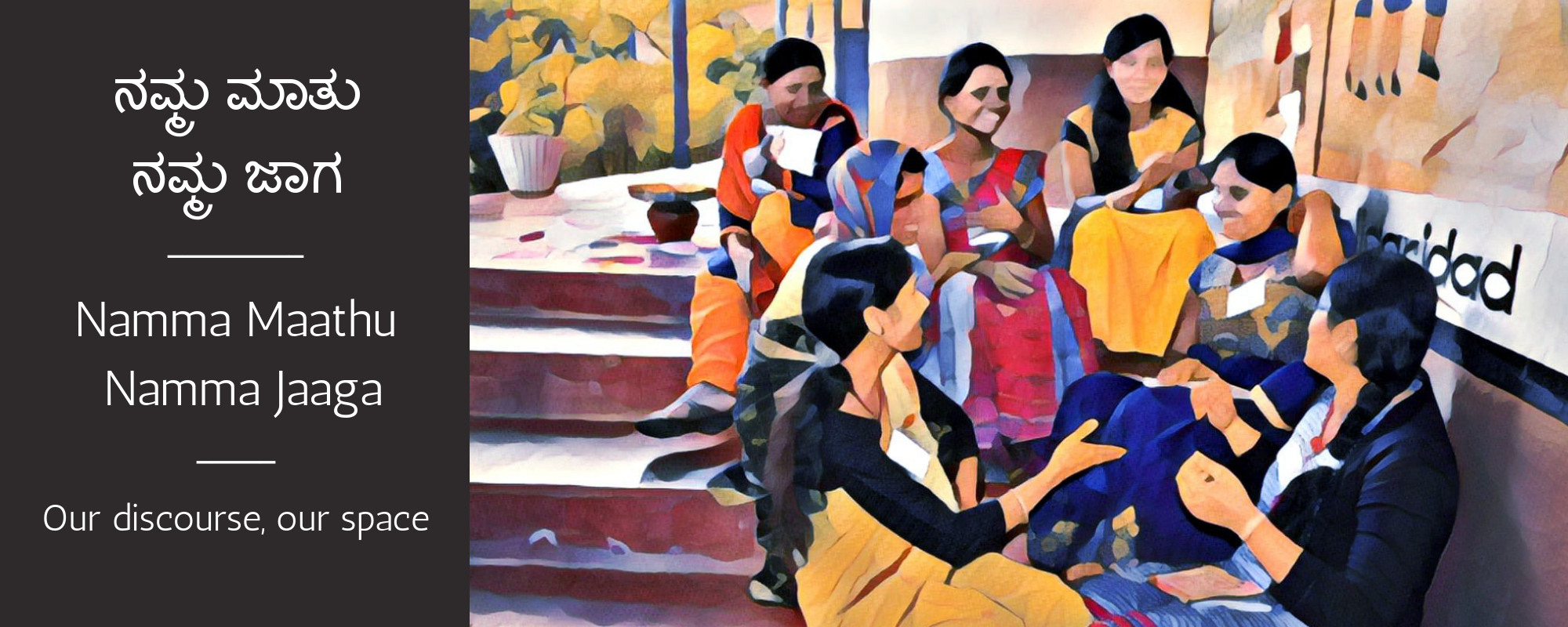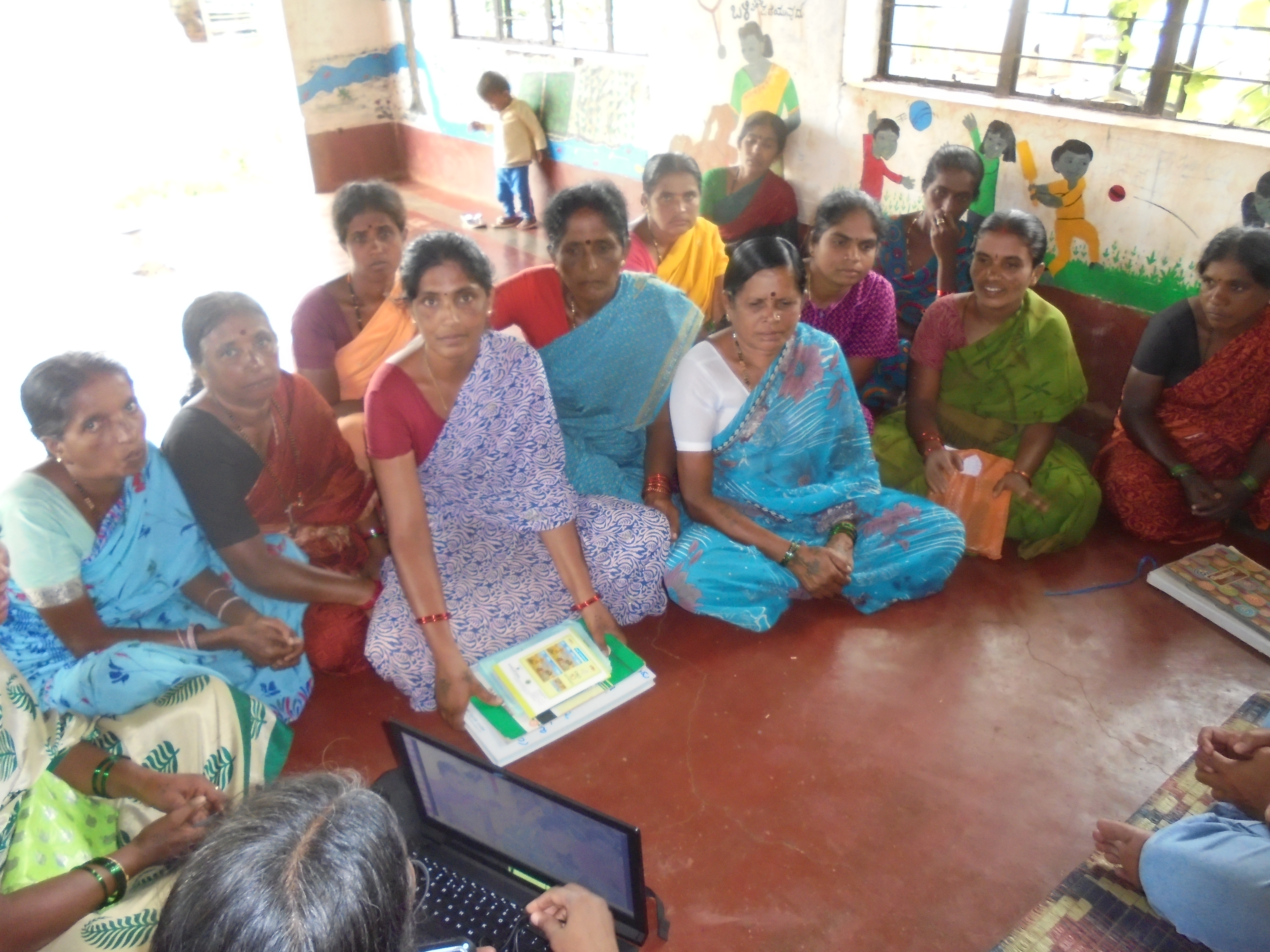
Sangha meeting at Kattemanugalli village
Sarada Mahesh | September 2018
From providing personal loans to helping protect money from a husband’s alcohol needs — a women’s sangha meeting in HD Kote is all levels of support

At 9.30 am on a Tuesday morning, one can find the women of Kattemanugalli village gather near the temple, armed with registers, books and pens. Lost in calculations about who owes whom what amount of money, the dates on which loans were taken and are to be repaid with what amount interest, the women barely notice us join them. The intense discussion winds down after a few minutes, and almost 20 women warmly greet the team. Because of their personal relationship with the sakhi, the women gladly spend some time with us and answer our questions.
They introduced themselves as the members of the Stree Shakti Sangha. Their primary purpose was for women to come together and collectively contribute to the finances of the group, so that they could provide loans to each other.
Since all the women lived within the same vicinity, they were aware of each others financial and personal situations, making it easier to tailor the conditions of loan repayment. When asked whether their husbands had a problem with them leaving the house and involving themselves in the working of the sangha, the women shrugged and reasoned that since the sangha had been a source of support for their husbands as well as their children, and the meetings took place not too far from their homes, they did not have much of a reason to complain.
A few women shared that in some households, the husbands took advantage of this loan system and placed the entire financial burden on their wives, while they themselves refused to do any work. Some even used this money for purposes like alcohol. The woman would then be forced to shoulder the responsibility of repaying the loan, and would sometimes even resort to menial labor.
When asked whether there were cases of domestic violence or child marriage in their village, the women shook their heads vehemently. “Such cases don’t happen in our village because we are aware that the law does not allow for the marriage of girls until they are above 18 years of age.” If such types of cases were to arise, they said that they would first report it to the sakhi in the Namma Mahiti Kendra. They were only aware of the existence of the Santhwana, but not its duties and functions. The sakhi then took this opportunity to spend a few minutes to explain this to the women, who listened eagerly.
The Dharmasthala Sangha held its meeting right outside the temple, at the same time as the Stree Shakti Sangha. The women also told the team that the Gram Panchayat usually discussed and helped resolve the small fights that arose in families. When questioned why only their husbands attend these Panchayat meetings, some women told us that it had always been that way — that the husbands would attend and would come back and report to their wives. This was a tradition that went on unquestioned — the women did not really think about it. However, there were a few women in the village who did attend these meetings and shared their problems with the members of the Gram Panchayat.
When asked if they were curious about learning the intricacies of the law, and if they would attend a training, the women got excited and said they were more than ready for this. “It is beneficial for us. We will have a better argument if we are pushed down,” one of them explained.